According to the Center for Disease Control, an average of 1,300 people die from smoking each day in the United States. Now all over the world, out of 7 million people who die from smoking every single year, 1 million die due to second hand smoking. It’s not a secret that the number of smoking related deaths is high, yet people still pick up the cancer stick and make a conscious decision to light it and inhale the caustic fumes. These very fumes filled with over 4,000 ingredients have been said to be highly addictive and seem to have a calming effect on the consumer. Now ask yourself this would you want to break this habit? If you knew there was a 97% efficacy rate for smoke cessation with a board certified hypnotherapist at Revibe Therapy, would you be interested in hearing more about this effective approach to quit smoking? Instead of picking up your cigarette would you rather pick the phone and have a phone consultation to discuss how to rid yourself of the smoking habit?
My name is Jose De La Cruz, the CEO of Revibe Therapy and I remember working for years as a Substance Outpatient Psychotherapist, and many times I ran into clients who after staying away from their drug of choice, they leaned deeper into the smoking, but then furthermore, if from there, they decided to work on eliminating smoking, they started to eat more/gaining weight, and so on and so on… it’s like some distraction had to be in place at all times. Tommy was no exception to this, Tommy (72 year old Veteran) had tried quitting smoking for years but would always fall back into the habit, he had tried smoking cessation, groups, patches, gum and just about anything you can imagine, one day he decided to try Hypnotherapy and all of a sudden his urges, craving, and impulses for smoking completely banished. I, as a Psychotherapist who had seen myself working with Tommy close to 2 years using behavioral therapy strategies, could not believe that in just one session of Hypnotherapy, Tommy had completely abandoned smoking for good, but I was sure very happy he did, because this definitely would improve his quality of life and even extend his lifespan. This inspired me to later on open my mind to the best behavioral tool out there to tackle many issues with thoughts, emotion, and behavior.
We at Revibe Therapy understand quitting is not easy, if it were, everyone would do it. There are so many options out there to help people quit smoking, and it is difficult to decide what option will work for you. One of the most popular treatments is Nicotine Replacement Therapy. With this treatment, Nicotine is provided to the body via patches, gum, sprays, or lozenges. The goal is to wean off the addictive substance, while avoiding withdrawal symptoms. The success of this type of treatment is better than quitting “cold turkey”, which is without any outside intervention or aid. The problem is that, for some, the urge, craving, or thought to smoke runs deeper, and this mainstream/ traditional approach takes a lot of long term will power, discipline, and commitment. Willpower distribution has been scientifically proven to be finite; in fact, you only have a limited amount of will power on a daily basis. Behaviors that you start executing without being used to doing them, wear out your willpower faster, while habitual behaviors sacrifice minimal will power expenditure. This leads to the habit being picked up again.
You see, our bodies have a powerful ability called neuro adaptation which is deeply embedded into our DNA and subconscious, neuro adaptation allows the body to create an allowance of what it gets used to getting, from none other than yourself. For example, we are not in sync with processed sugars, so our bodies create a way to process that amount of insulin, your body is not in sync with that certain medication, but just allow a couple of weeks or months and then you will you see results, your body is not used to lifting weights’ that heavy’ at the gym, but in a couple of weeks it will form new muscle fibers and neuro connections to the nerves, now allowing the body to withstand the capacity of that new heavier weight. You see how remarkable the human body is? What happens in the body also happens in the mind, they run parallel to each other.
An example of how neuro adaptation works in the brain is how most of us humans are so attached to our phones, social media, and the news. Practice makes perfect, anything you practice you become stronger at, so as the neuro transmitter that rewards us in our brain (dopamine) is released in high amounts, the body starts overdosing on dopamine and eventually starts releasing cortisol (the stress hormone) to protect you from the overdose as you stress and inflame the body.
Hypnotherapy is a treatment that targets the compulsivity and the underlying cause of the habit. There are several subconscious triggers that are not treated with a strict biological approach. Hypnotherapy helps to find what thoughts and emotions cause the cravings, and then works to dissolve the link between the two. Habits, Coping skills, and compulsivities are usually mistaken for each other but they are not the same. A habit is an automatic thought, a Coping skill is a behavioral divertive sequence to distract from an unwanted behavior, and an compulsivity is simply when you are no longer in control and the compulsivity now controls you, it is almost as if the compulsivity has its own persona or identity, yes, like a person with Dissociative Identity Disorder (DID), 2 examples found in movies are Fight Club and Split. The truth is we all dissociate and incorporate different personality modes, most of us not the extent of DID, but yes, we all do.
What needs to be considered is that most people that smoke and continue to smoke, do so because of the neuro adaptive abilities we have as human beings. Some people smoke as a way to cope with stress, anxiety, or other root causes. Trying to quit, even using Nicotine Replacement Therapy, can increase these emotions and lead to a quick relapse.
In the chart following this paragraph you can clearly see what us humans do when we run into an unwanted feeling such as Stress, Anxiety, Frustration ,and Depression. (By the way those feelings usually come in that same order, but that will be a different topic). You start with the unwanted feeling, then move on to a Distraction which can fall into any of the three distractions categories described (Habit, Coping Skill, and compulsivity). The major 2 problems with distraction are: (1) The distractions do not last very long, (2) They do not solve the originating cause of the issue, which in turn then leads to Frustration (this feeling means what you are doing is not working, not to be mistaken with anger) then leads you back into the unwanted feeling, but now the unwanted feeling has evolved to be even stronger than before, requiring a stronger distraction, leading to a stronger frustration, and on and on goes the cycle continues. Thus the grand explanation of why habits, coping skills, and compulsivities take time and repetition to become automatic behaviors, making them stronger over time whether good or bad.
All three distraction types usually bring pros and cons, yes you heard me right, in therapy we call the pros secondary gain issues, and sometimes breaking free of the secondary gain is the last step we discover before the person gains control of their life again. Now again, Traditional Counseling and Psychotherapy require a lot of will power, commitment, and discipline, and many times when individuals come to therapy for help, there is a very limited amount of will power we can work with to aid us. So how do we restore your mental health back to balance? The secret weapon is using your subconscious mind, which accounts for 95% percent of your mind’s true mental capacity, that’s right, we only use around 5% percent of our mind to address daily living activities, making rational decisions, and interpreting corporal language. Working with only 5% percent for Behavioral change instead of 95% is like facing the Huge walls of Jericho and Babylon with one soldier wearing his swimming trunks for armor and wielding a stick for combat.
The difference between Hypnotherapy and other smoking cessation treatments is that a holistic approach is taken in which the mind, body, heart, and spirit (will be defined in a future topic) are addressed to gain freedom from the compulsivity and the causes of the compulsivity. Hypnotherapy for smoking cessation has been found to have a success rate of 97%, which is higher than any other treatments when used alone. Even the 3% percent that is unresolved can later be addressed directly after the originating cause is identified with mental scans. Hypnotherapy can also be used in conjunction with other treatments without causing adverse side effects. We prefer to address Behavioral change via therapeutic modalities that incorporate Hypnosis such as Regressive Hypnotherapy, and the powerful Psychotherapeutic model of Cognitive Hypnotherapy (Eye Movement Desensitization and Reprocessing) to Identify and then eradicate the root of the cause. We still incorporate traditional models such as Cognitive Hypnotherapy, Family Behavioral Therapy, and Motivational Interviewing; however, we believe traditional modalities are best for the history gathering, preparation and the assessment phases of treatment.
Now let’s go back a little bit and further touch base on some of the earlier content of this article. What happens in the body eventually happens in the mind, and vice-versa, and what happens in the mind eventually happens in the body. Let’s talk about cortisol again for example, the stress hormone. Cortisol actually has many benefits such as protecting our lean body mass, keeping us focused, and keeping us productive when under pressure, however, too much of anything mostly brings detrimental consequences. When cortisol is elevated for too long in the body, your body gets a load of inflammation while also losing its ability to regulate the inflammatory response, so it is not uncommon to feel migraines, headaches, back pain, joint pain, bloating and other inflammations more than usual when under prolonged exposure to stress.
You can also see this happen the other way around, where a Concussion/Traumatic Brain Injury mimics symptoms of PTSD, or when insomnia leaves individuals with 3 hours of sleep , then the lack of sleep eventually affects circulation, pituitary glands, and the adrenal glands, until our hormones are compromised and our Testosterone and Estrogen get out of balance, resulting in symptoms of: loss of focus, loss of concentration, loss of memory recall, increase of anxiety, stress, irritability, and yes, even depression. On a Physical scale you may experience symptoms such as, insomnia, low libido, sexual impotence and chronic fatigue that seem to never go away.
Even though smoking can be a habit, coping skill, or compulsivity, the most common of the three, is for smoking to be in a habitual level. A habit, is an automatic thought, but let’s break down what habits are composed of:
- Cue- the cue is the signal that happens before the action takes place; this could a biological alarm, a way to suppress a feeling such as stress, a way to socialize, or craving sugar for physiological reasons among other possible motives on this same spectrum.
- Action- this is the execution of the habit itself, smoking right after drinking, having cookies after dinner, having doughnuts while having an intent to avoid them are just some examples.
- Reward- is the feeling of achievement or contributing benefit when executing the habit. A perfect example of this is when serotonin is released in your body after having processed sugars or carbs (makes you feel happy, smile, induces sleep, and regulates sex drive).
Habits are formed via repetition when the body constructs and connects neuro connective pathways in your brain to make the repetitive behavior, harder, better, faster, and stronger. Now remember, this happens whether the behavior is beneficial to you or not, in most cases there are pros and cons.
Habits can be positive or maladaptive, but then, so can coping-skills and compulsivities? Yes, that is correct. Breaking the Sequence of habits is done by undoing the established neuro connections and performing a rewiring of your Neuro-biology, yes, it is all about brain chemistry folks. You can administrate willpower, the downside to willpower is that science now has proof that we only have a limited amount of willpower we can use daily. The majority of us seem to have more willpower in the morning and then have less of it as the day goes, while the minority has more as the day develops.
Benefits of Quitting Smoking
You can expect the withdrawal symptoms of quitting smoking just like they happen with any behavioral change or behavioral transition , usually anxiety and depression are a given. Think of your adolescent years, whenever you were about to grow physiologically, you were more irritable, on edge, frustrated, and also underwent through stages of not wanting to try, just doing nothing. Well, as adults, we keep experiencing anxiety and depression when going through transitions or change, this is a normal Physiological response.
Within the first 30 days of quitting smoking:
- Restore your heart rate, circulation, and oxygen in the blood.
- Lungs will feel more capable, taste and smell become enhanced.
- Lungs heal, increasing your endurance and cutting down your risk for coronary diseases, cancers, and a weak immune system.
You will also have more money in your pocket since a pack of cigarettes averages about $7 a pack that’s about $2555 a year.
Benefits of Hypnotherapy
Hypnotherapy is a Psychological practice that uses Hypnosis as the technical vehicle to expedite behavioral change. Hypnosis is a state of hyper focus that happens on a daily basis with all of us. Example of this is: when you are driving home and you get lost in thinking about a memory or plans of what you are going to eat on your next meal, and you realize you drove home and got to your destination but do not recall every detail of how, when you get so lost in a book, anime, or movie that you perceived the 2 or more hours felt more like 30 minutes, or when you cry during a movie knowing the content of the movie still a is fantasy. Hypnosis is the vehicle that opens the door and communication between the conscious mind and the subconscious.
Hypnotherapy is becoming more known worldwide for its powerful impact on smoking, and treatment of chronic conditions and diseases. In just one session Hypnotherapy can reverse all of the negative cognitions tied in to this maladaptive behavior, by working with your powerful subconscious mind, this powerful 95% of your brain’s true capacity, eradicating the cause, and not just patching the symptoms. Hypnotherapy is known for its Bi-productive ability of enhancing focus, improving your breathing, posture, mindfulness, and enhancing your overall wellness just by participating in session, regardless of the main reason you are receiving Hypnotherapy.
The style of Hypnotherapy offered at Revibe Therapy incorporates Guided Imagery; this style of therapy is the powerful modality that hypnotizes even the most difficult individuals. Guided imagery allows the user to visualize creative imagery while relaxing the mind and body; Guided Imagery has been shown to be powerful and effective when conditioning the subconscious to gather defenses and strength to withstand urges cravings and impulses. By practicing healing, calmness, and serenity the subconscious is able to open and receive suggestions yourself and the hypnotists have agreed on.
At Revibe Therapy, our goal is to work with you to achieve your maximum state of happiness. This aids in freedom from compulsivity, anxiety, phobias, PTSD, trauma, weight loss and more.






 Most often it is not the situation, but how we think about the situation that causes our feelings. How we think about situations is based on what we have learned and experienced in the past. Over time we may begin to react in ways that do not help us, and start feeling stuck and unhappy.
Most often it is not the situation, but how we think about the situation that causes our feelings. How we think about situations is based on what we have learned and experienced in the past. Over time we may begin to react in ways that do not help us, and start feeling stuck and unhappy. Dr. Ivey, Psy.D. completed her doctorate in Clinical Psychology with a concentration in Organizational Consulting at Pacific University’s School of Graduate Psychology in Oregon. For her dissertation, Dr. Ivey conducted qualitative research on the effects of workplace discrimination and microaggressions on minority Veterans’ overall job satisfaction with their military career. She completed the APA-accredited Psychology Internship training program and Postdoctoral Residency at the Orlando VA Healthcare System.
Dr. Ivey, Psy.D. completed her doctorate in Clinical Psychology with a concentration in Organizational Consulting at Pacific University’s School of Graduate Psychology in Oregon. For her dissertation, Dr. Ivey conducted qualitative research on the effects of workplace discrimination and microaggressions on minority Veterans’ overall job satisfaction with their military career. She completed the APA-accredited Psychology Internship training program and Postdoctoral Residency at the Orlando VA Healthcare System. I know you’re stressed and exhausted while trying to keep up with the world’s go go go trials, trying to do it all perfectly. This “hustle” mentality makes all of us prone to mistakes and poor decisions. Your mind is overthinking at such a high pace by now that you no longer know where to find the off button, or recall when you turned it on in the first place. Trust me, I’ve been there, and in that dark place is where you start to feel worried and fearful about the future because you don’t feel in control of the now. Sound familiar?
I know you’re stressed and exhausted while trying to keep up with the world’s go go go trials, trying to do it all perfectly. This “hustle” mentality makes all of us prone to mistakes and poor decisions. Your mind is overthinking at such a high pace by now that you no longer know where to find the off button, or recall when you turned it on in the first place. Trust me, I’ve been there, and in that dark place is where you start to feel worried and fearful about the future because you don’t feel in control of the now. Sound familiar? Often, when we seek support through therapy, we seem to underestimate the power of our own role in the healing process. We have all carried metaphorical luggage filled with experiences and events that have impacted our life. I know that it has been hard for you to seek support in untangling those moments from the past that now provoke stress, anxiety, frustration, anger, loneliness, sadness, guilt, depression, or hopelessness. The fact that you are reading this means that you have the intention to become the best version of yourself.
Often, when we seek support through therapy, we seem to underestimate the power of our own role in the healing process. We have all carried metaphorical luggage filled with experiences and events that have impacted our life. I know that it has been hard for you to seek support in untangling those moments from the past that now provoke stress, anxiety, frustration, anger, loneliness, sadness, guilt, depression, or hopelessness. The fact that you are reading this means that you have the intention to become the best version of yourself.